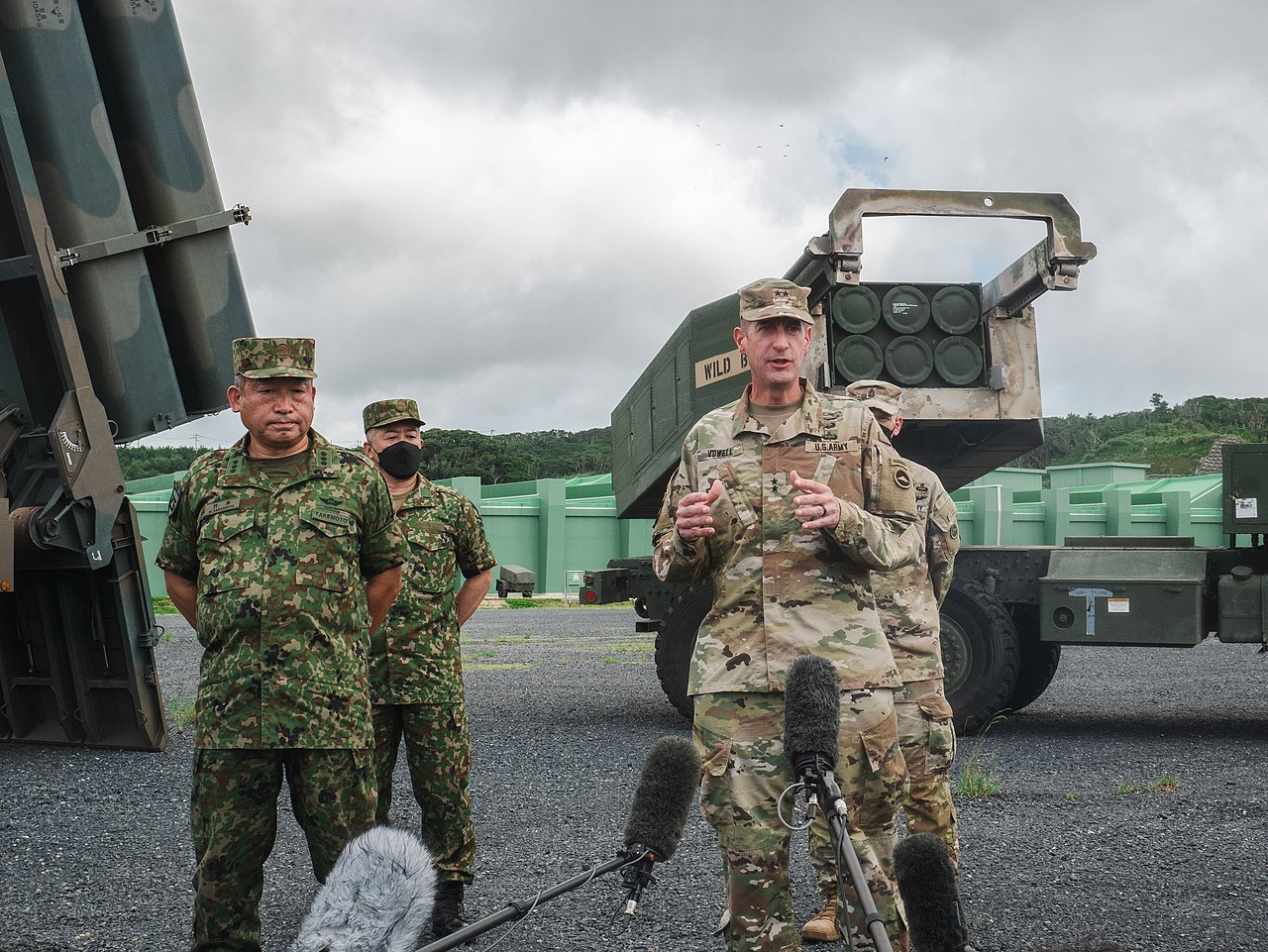U.S.— Japan alliance to get a space sized upgrade

The Commanding General of the U.S. Army Japan, Maj. Gen. JB Vowell (right)
at Camp Amami in Kagoshima, Japan in 2022.
Hailey Brown — The U.S. has long viewed Asia as an important region within the calculation of its geopolitical code. China has established itself as a growing world power, threatening U.S. dominance in certain industries, and rivaling its military capacity. Regional tensions have caused some countries, like Japan, and the U.S. to turn to each other to build important alliances. While Japan was once a World War II rival, it is now one of the United States’ most important alliances. The Japanese Prime Minister Fumio Kishida’s recent visit to Washington reveals more about the allies' relations.
“On the spaceship called ‘Freedom and Democracy,’ Japan is proud to be your shipmate. We are on deck, we are on task. And we are ready to do what is necessary,” Fukishida said in a speech to Congress. The speech echoed the purpose of the week-long summit, in which new agreements revealed many important power calculations for the two countries. Perhaps most important was the countries invigoration of their military and defense partnership. Japan and the U.S. have plans to create an operational defense hub in the Pacific and an air defense network with Australia. These expansions would counter China’s growing regional military power, protecting the United State’s material and relational power dominance, while growing Japan’s. The countries have expressed this power outwardly, conducting military drills in parts of the South China Sea. They also announced that a Japanese astronaut would join U.S. astronauts on NASA’s next mission to the moon, the first time a non-American would be on board. These critical decisions, along with concurrent business agreements with Japanese companies, demonstrate the depth of the U.S.-Japan alliance.
The importance of last week’s summit can be contextualized by geopolitical codes. These codes are a blueprint for how countries position themselves with their neighbors, within their region, and within the world. It identifies allies, enemies, threats, and justifications for decisions a country makes. For the U.S, Japan is a critical ally in a region where it is rivaled. Likewise, the U.S. is a key partner for Japan to maintain regional military security. Broader calculations like business contracts demonstrate the two countries' attempts to position themselves within the world. Japan is courting a powerful country, but the relationship is mutual. The U.S. also relies on the alliance to maintain its own power status.
Image source: Maj. Devon Thomas, Public domain, via Wikimedia Commons

